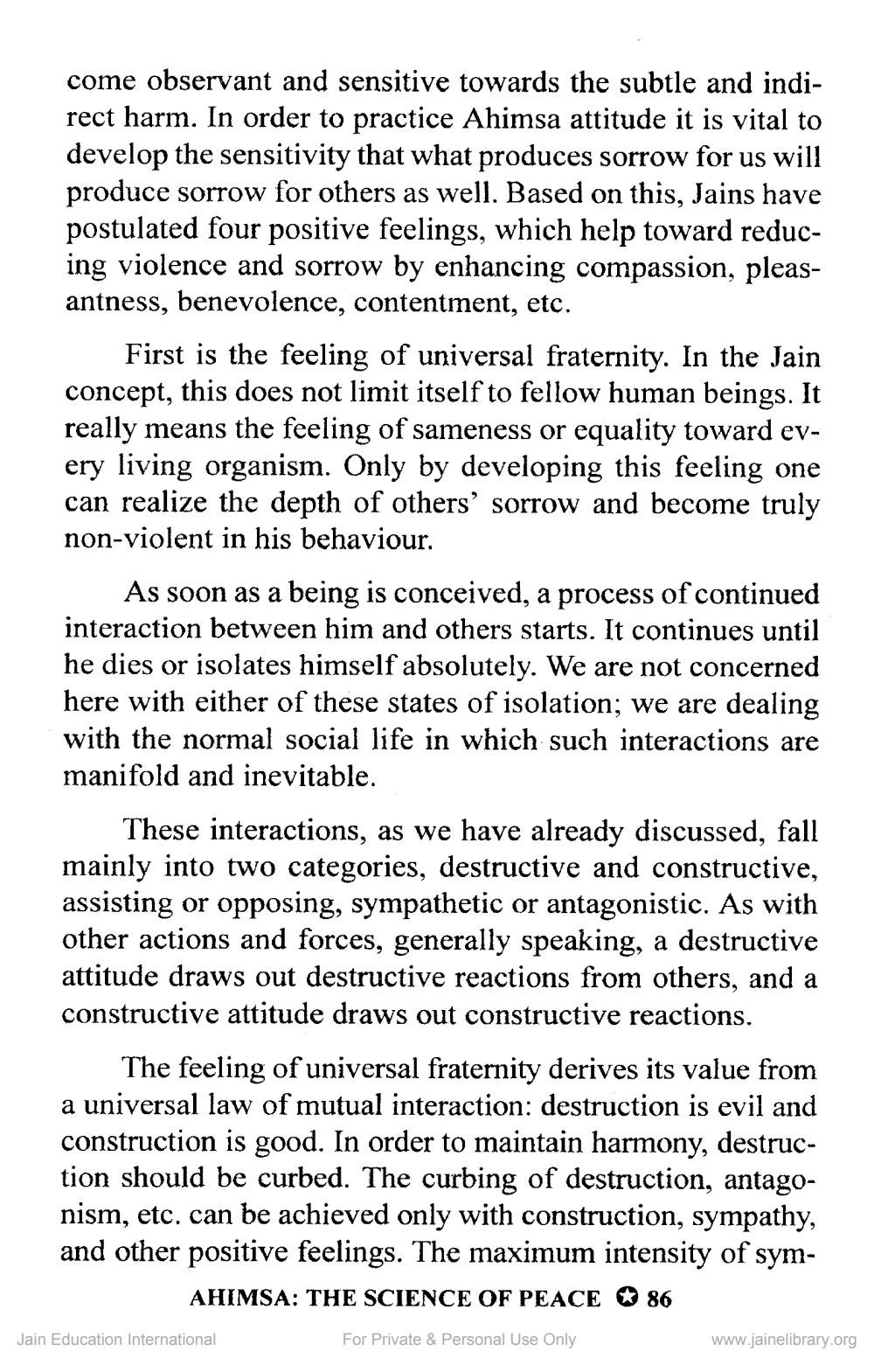________________
come observant and sensitive towards the subtle and indirect harm. In order to practice Ahimsa attitude it is vital to develop the sensitivity that what produces sorrow for us will produce sorrow for others as well. Based on this, Jains have postulated four positive feelings, which help toward reducing violence and sorrow by enhancing compassion, pleasantness, benevolence, contentment, etc.
First is the feeling of universal fraternity. In the Jain concept, this does not limit itself to fellow human beings. It really means the feeling of sameness or equality toward every living organism. Only by developing this feeling one can realize the depth of others' sorrow and become truly non-violent in his behaviour.
As soon as a being is conceived, a process of continued interaction between him and others starts. It continues until he dies or isolates himself absolutely. We are not concerned here with either of these states of isolation; we are dealing with the normal social life in which such interactions are manifold and inevitable.
These interactions, as we have already discussed, fall mainly into two categories, destructive and constructive, assisting or opposing, sympathetic or antagonistic. As with other actions and forces, generally speaking, a destructive attitude draws out destructive reactions from others, and a constructive attitude draws out constructive reactions.
The feeling of universal fraternity derives its value from a universal law of mutual interaction: destruction is evil and construction is good. In order to maintain harmony, destruction should be curbed. The curbing of destruction, antagonism, etc. can be achieved only with construction, sympathy, and other positive feelings. The maximum intensity of sym
AHIMSA: THE SCIENCE OF PEACE 86
Jain Education International
For Private & Personal Use Only
www.jainelibrary.org




